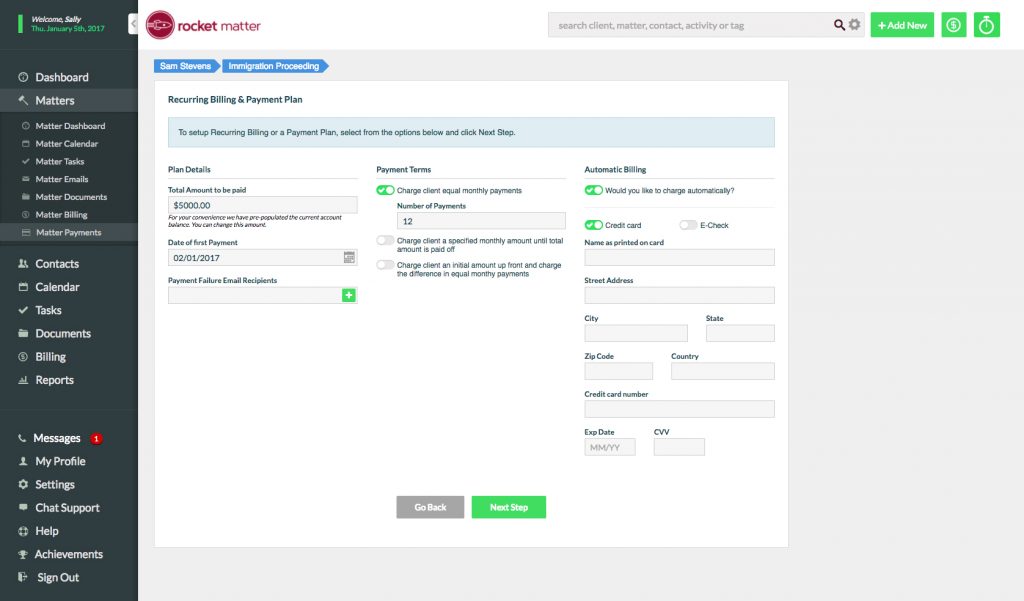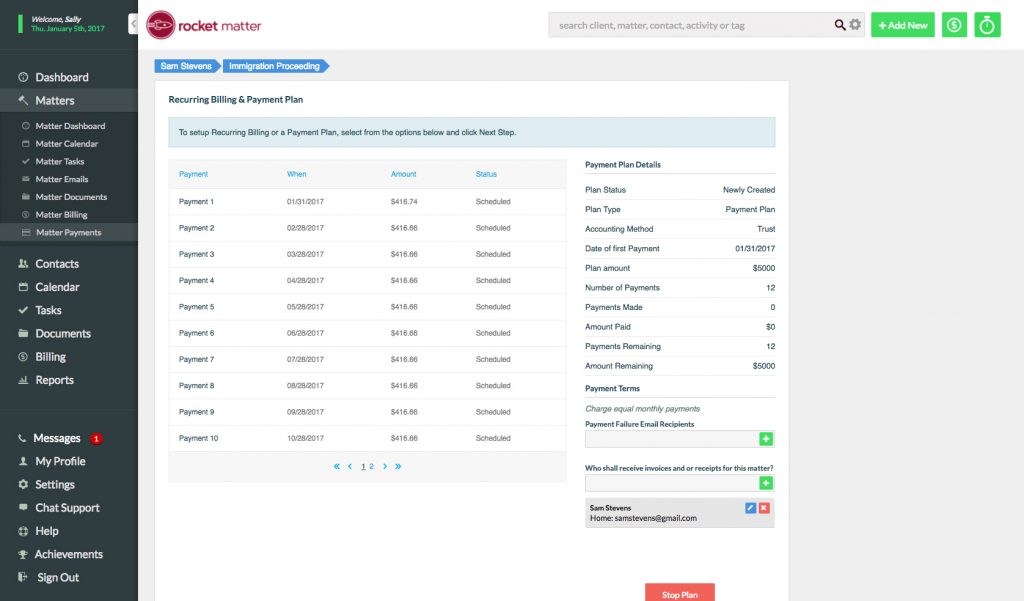The cloud-based law practice management platform Rocket Matter today is rolling out a major software update that adds recurring billing functionality, user interface enhancements and workflow improvements.
The recurring billing functionality can be used for two distinct billing scenarios. The first is if you have a client who pays you a flat amount each month, either perpetually for the life of the representation or for a set duration. This is most common among attorneys who use alternative fee arrangements.
The other scenario is to set up a payment plan for a client who owes an outstanding balance. This might be used, for example, where the client cannot afford to pay a large bill but can pay in installments.
In either scenario, Rocket Matter’s new feature lets you set up the payments once and be done. Each month thereafter, the invoice will be automatically sent to the client. Additionally, it can be set up to automatically charge the payment amount to the client’s credit card or checking account.
When you use the feature to set up a payment plan, you have three options:
- Set the number of payments and have the system calculate the monthly amount.
- Set a specific monthly amount until the account is paid off.
- Specify a larger amount for the first payment and then equal payments thereafter.
If you set up the automatic payment option, you can then specify where you want the funds to post — whether to your operating account or trust account — or you can choose automatic accounting, which will pay off the balance first in the operating account and they apply any excess to the trust account.
At any point, you can view a page that shows the payment plan status and payment history.
User Interface Improvements
Today’s release speeds Rocket Matter by eliminating as much as 80 percent of the page-load time. This has been accomplished by moving the platform to a new single-page architecture and by major database optimizations.
The single-page architecture means that Rocket Matter now loads a single HTML page and dynamically updates that page as the user performs various functions. This eliminates multiple page reloads that would slow down transitions from various functions, such as moving from a billing screen to a matter dashboard and then to a calendar.
In addition, the new design allows users to add and edit critical information such as timer entries, calendar events and tasks without transitioning away from the page they are on. Instead, a modal window opens up to add the information. When you finish, you are still on the page where you started.
Mix-and-Match Matter Templates
Another change today enhances workflows within a firm by enhancing the functionality of Matter Templates in Rocket Matter.
I wrote last March about Rocket Matter’s introduction of Matter Templates. These allow law firms to create templates that will automate the process of setting up new matters for specific practice areas. Firms will be able to customize the data fields to be filled out for different types of new matters and to set specific tasks and events.
Previously, that could be done only when creating a new matter. With today’s change, firms can apply templates to any matter at any time, and they can apply multiple templates to the same matter.
In addition, the templates now allow tasks to be assigned by roles as opposed to by names. Before today, when using a Matter Template, specific tasks would be assigned to specific individuals within the firm by name. Now, they can be assigned by role, such as Primary Attorney or Lead Paralegal. That makes task-based assignments much easier, particularly in larger firms.
 Robert Ambrogi Blog
Robert Ambrogi Blog
